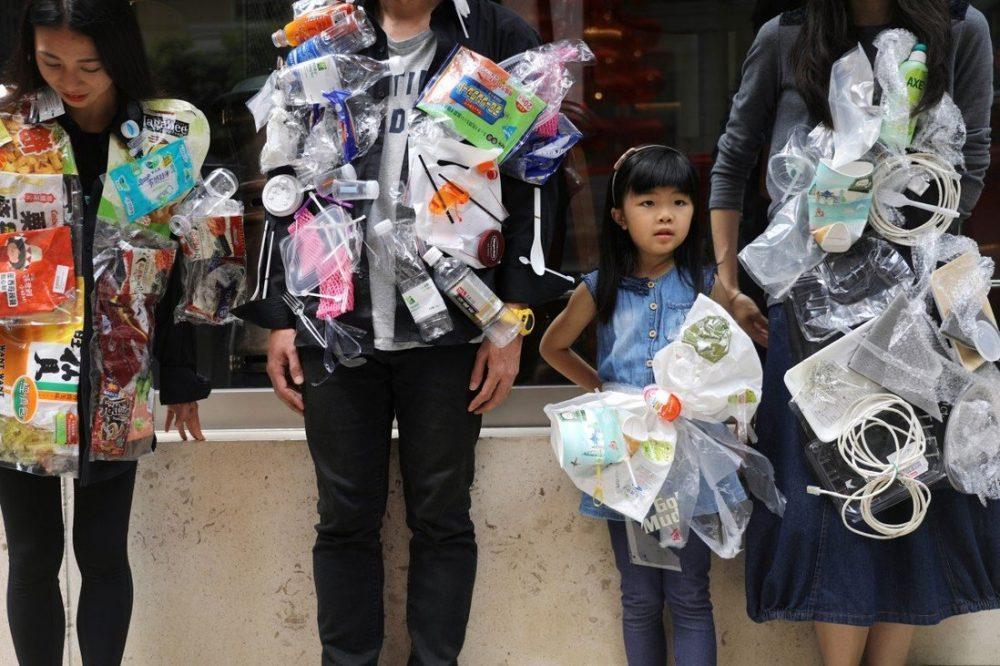Hong Kong can look to other cities to find better ways to manage plastic and other waste, use the lull in visitors to explore more sustainable forms of tourism and invest in workforce training for a more circular economy
Original post on SCMP
The public consultation in Hong Kong on the scheme to regulate disposable plastic tableware has sparked debate among green groups clamouring for faster action and more stringent measures.
The scheme comes as sustainability demands our attention more than ever. Everyone can see how pollution has worsened during the pandemic as plastic waste plagues Hong Kong in ever more concerning amounts.
Many other places are waging similar battles, as waste management systems across Asia-Pacific cities are overwhelmed with lockdowns and quarantines, forcing people to rely on deliveries and takeaways. Our reliance on plastic may be ingrained but we all know it’s a ticking time bomb that needs defusing.
While this environmental cost looms large, the immediate concerns of many have understandably been focused on rebuilding post pandemic, with key industries such as tourism, aviation, hospitality and more upended.
There is hope that we can secure Hong Kong’s future if we start tackling the problems today. The plastic cutlery scheme represents an important step forward – even if it may not go far enough, we need the positive momentum to build on. We need our local leaders to fix community issues to rebuild a more resilient city after Covid-19.
How do we chart the best way forward? Inspiration from our peers may help. At the Asia-Pacific Mayors Academy, organised by the Association of Pacific Rim Universities and United Nations Economic and Social Commission for Asia and the Pacific (ESCAP), among others, I saw different mayors share their best practices.
While each city faces unique circumstances, sustainable development can be adapted to local challenges as common threads hold true.
For example, for Ormoc city in the Philippines, collaboration between the national and local government, private partners, NGOs and the public became a key to unlocking its holistic approach to battling waste issues.
From building a more integrated solid waste management system and instituting a single-use plastic products ordinance, to healthy ocean projects that reduce marine waste, Ormoc engaged different stakeholders and used smart, green technologies and different financing mechanisms.
These measures feed back into Ormoc’s Resilient and Green Recovery Plan to build a circular economy to uplift citizens and reduce vulnerabilities to crises.
Some might feel Hong Kong needs to do more to clarify its sustainable development plan and how all the moving parts, such as the latest scheme, feed into it. Only with clear, measurable goals and a well-thought-out, multi-stakeholder engagement strategy can the city better educate people on how to effectively take part.
While plastic waste during Covid-19 has been a massive issue, there are instances where the challenge was turned into an opportunity. For Koh Tao in Thailand, the pandemic reduced the popular dive destination’s daily visitors by over 90 per cent, leaving many struggling to find work.
To help, the island secured funding to pay out-of-work tour boat operators and taxi drivers to clear waste from the beaches and waters.
Not only did the community benefit from a cleaner environment and a source of income during challenging times, the programme also trained participants in financial literacy, courtesy of corporate sponsors.
Now, Koh Tao is working on a “smart island” sustainable tourism model that would better manage its natural resources and biodiversity, economic stability and safety.
Hong Kong is experiencing a pandemic-induced tourism lull. Is there a better way for us to operate once tourists return in numbers? Can we better use this time to invest in retooling people who are struggling?
There is untapped potential for businesses and the workforce to thrive in a more circular economy– we just need to relentlessly foster the right capabilities and skill sets.
Every city needs a cohesive vision as well as coordination and buy-in across different levels of society. We need to be on the same page about our collective problems and be engaged in debate over ways to address them.
Prevention is better than cure. We need pragmatic, forward-looking solutions. The last thing we want is to burden future generations with our half-solved (or unsolved) mess.

